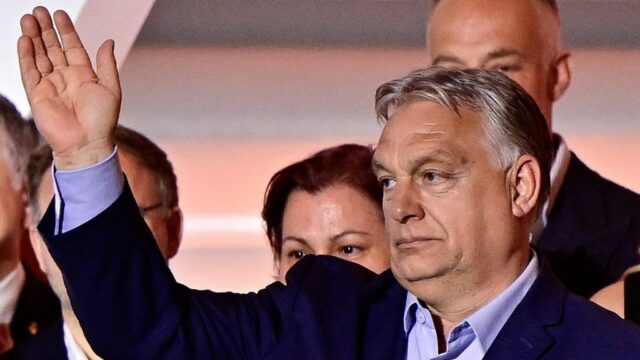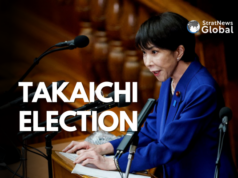Hungary took over the rotating presidency of the European Union on Monday with a Trump-like call to “Make Europe Great Again”.
EU lawmakers have questioned whether Hungary should be allowed to take on this role. Their concerns are based on Prime Minister Viktor Orban’s clashes with Brussels over democratic norms.
In stark contrast to his European partners, Orban openly supports former US President Donald Trump. The 61 year old Hungarian Prime Minister is close to both the Chinese President Xi Jinping as well as the Kremlin.
Hungary will hold this presidency till the end of this year.
On Sunday, the Hungarian Prime Minister announced in Vienna the creation of “Patriots for Europe,” a new far-right alliance, in the European Parliament.
He presented the alliance with Herbert Kickl, leader of Austria’s far-right Freedom Party (FPOe), and Andrej Babis, leader of the main Czech opposition party Action of Dissatisfied Citizens (ANO).
Budapest insists it is ready to assume “the duties and responsibilities” steering the bloc of 27 countries.
“We will be honest brokers, working loyally with all member states and institutions,” Hungarian EU Affairs Minister Janos Boka said in mid-June as he unveiled the presidency’s programme.
He added, “At the same time, we believe Hungary has a strong mandate to pursue a strong European policy. Our work will reflect this vision of Europe.’’
Analysts however say that Budapest’s actions at the forefront of EU policy-making are likely to be restricted given that Brussels is in a transition phase following elections in June.
The presidency’s role is to set the agenda, chair meetings of EU members in all fields except foreign or euro zone matters, seek consensus among EU member states and broker agreements on legislation with the European Parliament.
It will take months for a new European Commission and the new members of parliament to be in their stride, analysts say.
That means that, even though far-right gains politicians potentially sympathetic to Hungary’s priorities made gains in the EU elections, the presidency’s ability to drive policy through is limited.
“There’ll only be a small influence on the legislative agenda. That starts much later, possibly at the end of the year, possibly at the beginning of next year,” said Pavel Havlicek, research fellow at the Association for International Affairs.
Hungary has said its priorities include pushing western Balkan membership of the EU, illegal migration and economic competitiveness.
Critics note its enlargement push does not include Ukraine.
Hungary has a history of blocking or delaying funds and arms for Ukraine, as well as maintaining ties with Moscow. It has also criticised EU efforts to cut dependence on China.
Ahead of its assumption of the EU presidency, the bloc hurried through new sanctions against Russia and launched membership talks with Ukraine.
Susi Dennison, senior fellow at the European Council on Foreign Relations, said a “ballsy” presidency launch suggested Hungary might seek to push its nationalist line.
Johannes Greubel, senior policy analyst at the European Policy Centre, said some of priorities, such as on competitiveness, struck a chord with the rest of the EU, but this would likely be combined with right-wing rhetoric on migration, the Ukraine war and the rule of law.
“It is a presidency of a mixed narrative, but far-right elements will prevail.’’
(With inputs from Reuters)
Delhi based journalist pickled in journalism. Have reported from nine world capitals and almost all parts of India. Over the last three decades, I have worked for India’s mainstream English dailies and contributed to All India Radio, Doordarshan and Women’s Feature Service. Also worked for international media including Japan’s leading newspaper, The Asahi Shimbun and done assignments for The Sunday Times, London, The Telegraph, The Guardian and the Canadian Broadcasting Corporation. Worked in the Embassy of France in New Delhi and can speak French to save my life. Write on Diplomacy, Politics and the social sector. Love Nature, heritage, Nature, animals and vintage cars. Enjoy cycling and playing badminton.





